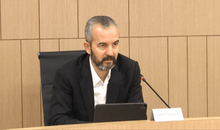
 Flash News
Flash News
Accident in Lezha, 69-year-old loses control and hits 4 parked vehicles
Accident in Lezha, car ends up in the parking lot of a playground
Report/ Albanian healthcare between limited transparency and under-financing
Accident on the Fier-Vlora axis, car goes off the road, 3 injured
State Matura, mathematics exam results published
Report/ Kosovo has the lowest peace and economic index in the region, Albania is deteriorating
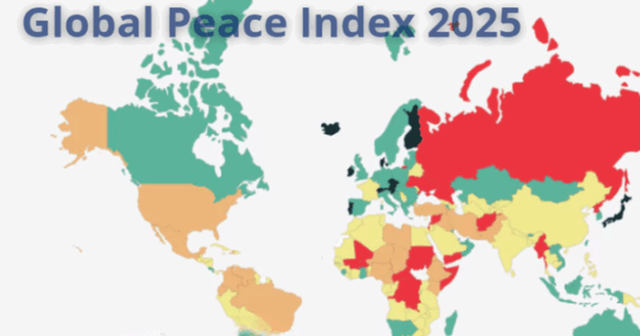
Kosovo has dropped three places in the Global Peace Index, conducted by the Institute for Economics and Peace. Iceland tops the list of countries, while Kosovo ranks 63rd. Albania is 52nd, but also with a drop of 6 places, Serbia ranks one position worse than Kosovo, Bosnia and Herzegovina 59th, Montenegro 34th, North Macedonia 51st, Croatia 19th.
The Institute for Peace and Economics has published the Global Peace Index 2025, a detailed report for all countries in the world, including Kosovo and Albania. This report presents a comprehensive, data-based analysis of trends in peace, its economic value, and the development of peaceful societies.
For this report, 23 qualitative and quantitative indicators were used to measure the state of peace in three areas: the level of social security, the degree of ongoing domestic and international conflict, and the degree of militarization.
In the overall ranking, Kosovo has marked a deterioration of 3 places, ranking in 63rd position and is located in the middle of the table along with Serbia, Zambia, Moldova, Uzbekistan, Cyprus, Senegal, Liberia, Jordan, Tanzania, Malawi, France, Paraguay, Nepal, Kyrgyzstan, Tajikistan, Dominican Republic, Tunisia, Equatorial Guinea and Bolivia.
In the section on ongoing internal and international conflict, Kosovo was scored with 1,805 points. In terms of social security and internal security, Kosovo was scored with 2,144 points. In terms of militarization, Kosovo received 1.67 points.
In another report by the same organization measuring the impact of terrorism, Kosovo is ranked among the least affected countries, rising 13 positions. Albania is ranked 52nd, but with a deterioration of 6 points compared to the previous report.
Albania performs better in the following indicators:
-Internal and international conflicts: Albania has not been involved in wars or armed conflicts, neither within the country nor abroad.
-Crime and terrorism: The level of serious crime and the lack of terrorism keep the country on a quiet profile.
– Militarization: Military spending is among the lowest in the region as a percentage of GDP.
The indicators where Albania ranks weakest are:
– Political stability: High polarization, protests, and divisive rhetoric negatively impact the stability indicator.
– Perception of public safety: Although statistics are positive, citizens' perception of safety in urban environments is weaker.
– Institutional functioning: Low capacity for crisis management or emergency response is cited as a shortcoming.
In the Western Balkans region, Serbia has also dropped one position, ranking behind Kosovo in 64th place, while Montenegro is the country that has made the greatest progress in the Western Balkans region.
“Montenegro marked the largest improvement in the region, with its overall score improving by 2.3 percent over the past year. This was driven mainly by an improvement in the Security and Protection area, as the homicide rate indicator and the political terror rate indicator improved by 69.7 and 25 percent, respectively. The homicide rate is 0.8 per 100,000 inhabitants, a record low for Montenegro. In October 2024, a regional initiative to reduce illicit weapons possession – the Roadmap for the Control of Small Arms and Light Weapons (SALW) in the Western Balkans – was approved for a second phase following the success of the original Roadmap for the Control of SALW in the Western Balkans, which was adopted in 2018 and set targets to be achieved by 2024,” the IEP report states.
In the 2024 report, Kosovo had progressed by three places and was ranked in 56th position. The ranking is led by Iceland, Ireland, New Zealand, and Austria. At the bottom of the list are Ukraine and Russia./ Monitor
Latest news


Accident in Lezha, 69-year-old loses control and hits 4 parked vehicles
2025-06-26 20:51:34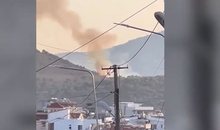


KPA upholds dismissal of judge Avni Sejdi
2025-06-26 20:15:54

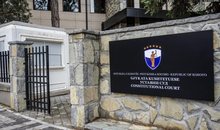

Accident in Lezha, car ends up in the parking lot of a playground
2025-06-26 19:35:03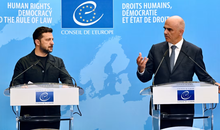
Special court for the war in Ukraine, Zelensky signs the agreement in Strasbourg
2025-06-26 19:17:43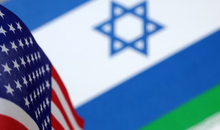

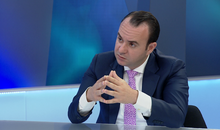
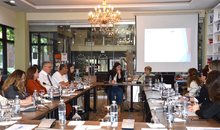
Report/ Albanian healthcare between limited transparency and under-financing
2025-06-26 18:34:34
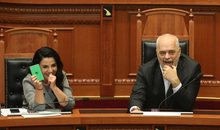
Rama returns to Parliament after 6 months of absence
2025-06-26 18:14:37
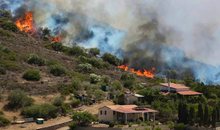
Greece on fire, several houses burn in Athens, residents evacuated
2025-06-26 17:46:29
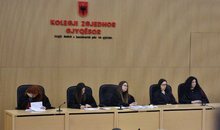
The College rejects the DP's request for the Vlora region
2025-06-26 17:29:18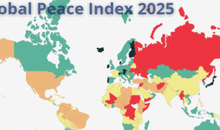
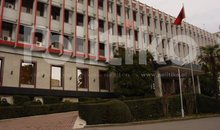

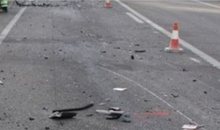
Accident on the Fier-Vlora axis, car goes off the road, 3 injured
2025-06-26 16:17:52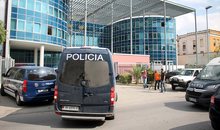
State Matura, mathematics exam results published
2025-06-26 16:05:33
Don't get burned by carelessness: Six mistakes that make sunscreen useless
2025-06-26 15:58:18
Caught with cocaine, 26-year-old arrested in Saranda (NAME)
2025-06-26 15:50:42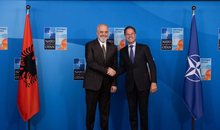
What does 5% of GDP on defense mean?
2025-06-26 15:42:39
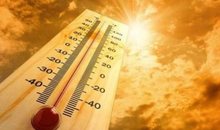
Extreme heat wave, temperatures above 40°C next week
2025-06-26 15:26:12
State Matura/ Mathematics test results published, only 166 excellent students
2025-06-26 15:07:10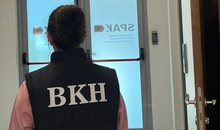
Race for BKH leader, 6 candidates disqualified, reason
2025-06-26 15:07:10
Have Sarah and Dj Pm broken up? Einxhel reveals the truth
2025-06-26 14:56:12

Neighbor's daughter stoned and police officers shot, two brothers arrested
2025-06-26 14:37:03
GJKKO leaves Ilir Meta in prison
2025-06-26 14:20:19
Anesthesiologist at QSUT, Nertila Kodra Gora, passes away
2025-06-26 14:20:04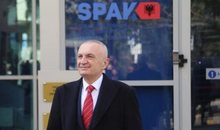
Ilir Meta's defense arguments in the GJKKO are revealed
2025-06-26 14:00:15
5 super healthy foods you should add to your diet
2025-06-26 13:47:51

Anatomy of a crime
2025-06-26 13:24:08
Don't cover your baby's stroller on hot days like these, here's why
2025-06-26 13:06:01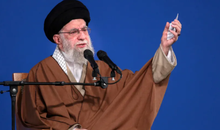
Iran's Supreme Leader reacts for the first time after the conflict with Israel
2025-06-26 12:58:27

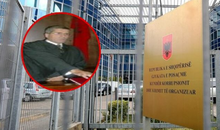
Special Appeal makes decision for former judge Guxim Zenelaj
2025-06-26 12:17:01
Will Smith poses next to the Albanian footballer, making the double-headed eagle
2025-06-26 12:07:10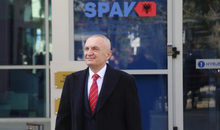

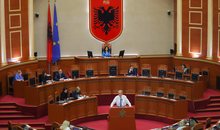
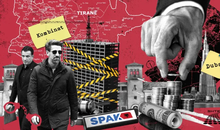


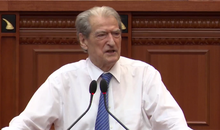


Vacation? Not for us
2025-06-26 10:20:50
When the camps become an "honor" for Italy and a "shame" for Britain
2025-06-26 10:10:21
SPAK leader demands dismissal of Ermonela Felaj's sister
2025-06-26 09:59:39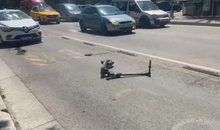

Why is it so difficult for us to get a good night's sleep?
2025-06-26 09:40:20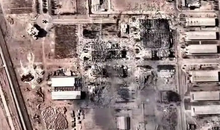
Iran: Complete destruction or just minor damage?
2025-06-26 09:27:53
Donald Trump demands immediate cancellation of Netanyahu's trial
2025-06-26 09:19:46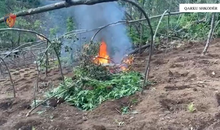
Thousands of cannabis roots found and destroyed in Shkodra, 4 prosecuted
2025-06-26 09:10:50
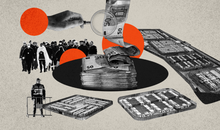
Costly experiment: Italy weighs costs of migrant centers in Albania
2025-06-26 08:54:01
Election effect, employment in the state reaches record in the first quarter
2025-06-26 08:40:21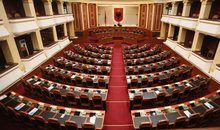
Parliament in plenary session, draft laws expected to be approved
2025-06-26 08:29:34
Horoscope, what do the stars have in store for you today?
2025-06-26 08:12:59
Parashikimi i motit, temperaturat arrijnë deri në 37 gradë
2025-06-26 07:58:10
Posta e mëngjesit/ Me 2 rreshta: Çfarë pati rëndësi dje në Shqipëri
2025-06-26 07:45:04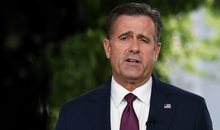
CIA chief: Iran's nuclear facilities 'severely damaged' by recent attacks.
2025-06-25 22:53:09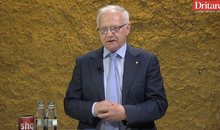
NATO spending to increase by 5%, diplomat: Aims to pull economies out of crisis
2025-06-25 22:32:28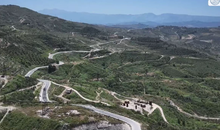
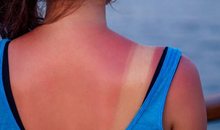
Djegia nga dielli, ja disa mënyra si ta trajotni në kushte shtëpie
2025-06-25 21:56:19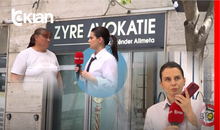
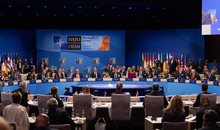
Rama: NATO Summit in 2027 will be held in Tirana
2025-06-25 21:36:35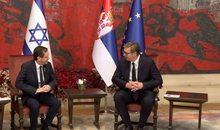
What is known about the weapons that Serbia has banned from exporting to Israel?
2025-06-25 21:23:19


The new war front? Not in the Middle East, but in SPAK!
2025-06-25 20:40:02
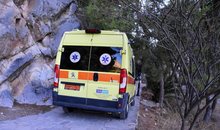
Gjendet e vdekur 56-vjeçarja shqiptare në Greqi! Nënë e 3 fëmijëve
2025-06-25 20:21:03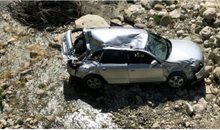
PHOTO/ Car falls off bridge on Peqin-Elbasan axis
2025-06-25 20:11:16
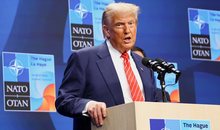
Trump at NATO summit: In recent weeks we have dealt with Kosovo and Serbia
2025-06-25 19:47:10


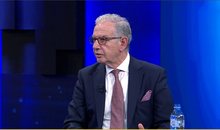
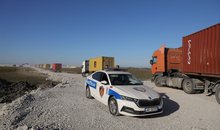

Trump: US to meet with Iran next week, but nuclear deal not necessary
2025-06-25 18:15:22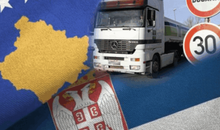

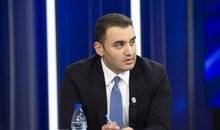
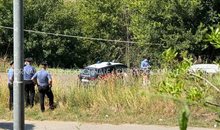
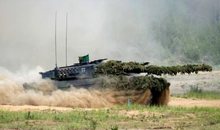
NATO's defense plan, what will change for Albania?
2025-06-25 16:42:07
Bayern loans Albanian talent to German team
2025-06-25 16:32:00
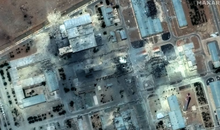
Kremlin: US and Iran disagree on damage caused by attacks
2025-06-25 16:13:55